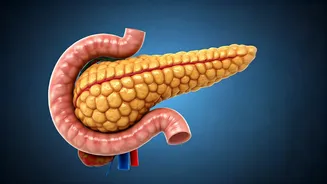Insulin Resistance: Overview
The health landscape for South Asians presents a complex picture, often complicated by factors such as genetics, dietary habits, and lifestyle choices.
A major concern is the high incidence of insulin resistance, a condition where the body's cells don't respond effectively to insulin, leading to elevated blood sugar levels. This can pave the way for serious health complications, including type 2 diabetes, cardiovascular disease, and other metabolic disorders. Understanding the specifics is vital to tackling this public health challenge, highlighting the need for tailored strategies to address these unique health needs. This also underscores the necessity for comprehensive health interventions.
Contributing Factors Explained
The elevated risk of insulin resistance in South Asians is driven by various factors. These include genetic predispositions, which may increase susceptibility. Dietary patterns, rich in carbohydrates and processed foods, can exacerbate the condition. Additionally, lifestyle choices, particularly a lack of physical activity, contribute to reduced insulin sensitivity. These intertwined influences collectively elevate the risk and emphasize the need for comprehensive approaches in health management.
Early Warning Signs
Identifying early warning signs is crucial for effective intervention. Common indicators include increased thirst and frequent urination, especially at night. Fatigue, persistent hunger, and unexplained weight loss or gain may also be present. Recognizing these signs and seeking timely medical advice allows for early intervention and effective management of insulin resistance, which prevents the condition from progressing to more severe health complications.
Management Strategies Explored
Managing insulin resistance demands a multifaceted approach centered on lifestyle modifications. This involves adopting a balanced diet, emphasizing whole grains, lean proteins, and plenty of fruits and vegetables, while limiting processed foods and added sugars. Regular physical activity, including both aerobic and resistance training, is vital. Consistent exercise significantly enhances insulin sensitivity. Medical supervision and, if necessary, medication may also be required to effectively manage the condition and minimize the risk of complications.
Dietary Recommendations Defined
Dietary adjustments are vital for improving insulin sensitivity. Emphasize a diet abundant in whole grains, lean proteins, and non-starchy vegetables. Minimize intake of refined carbohydrates, sugary beverages, and processed foods. The overall goal is to stabilize blood sugar levels. Proper meal planning, portion control, and mindful eating will assist in achieving better health outcomes.
Exercise and Activity
Regular physical activity is vital. Aim for at least 150 minutes of moderate-intensity aerobic exercise weekly, such as brisk walking or cycling. Include strength training exercises at least twice a week to build muscle mass. These steps help the body's cells respond more effectively to insulin. This improves metabolic health and reduces the risk of complications associated with insulin resistance.
Medical Guidance and Support
Seeking professional medical advice is essential. Consult with healthcare providers for personalized guidance and regular check-ups. They can assess your specific health needs and recommend appropriate treatment plans. Following medical advice and taking prescribed medications, if necessary, are critical in effective management. This includes medication for diabetes or other related conditions.












